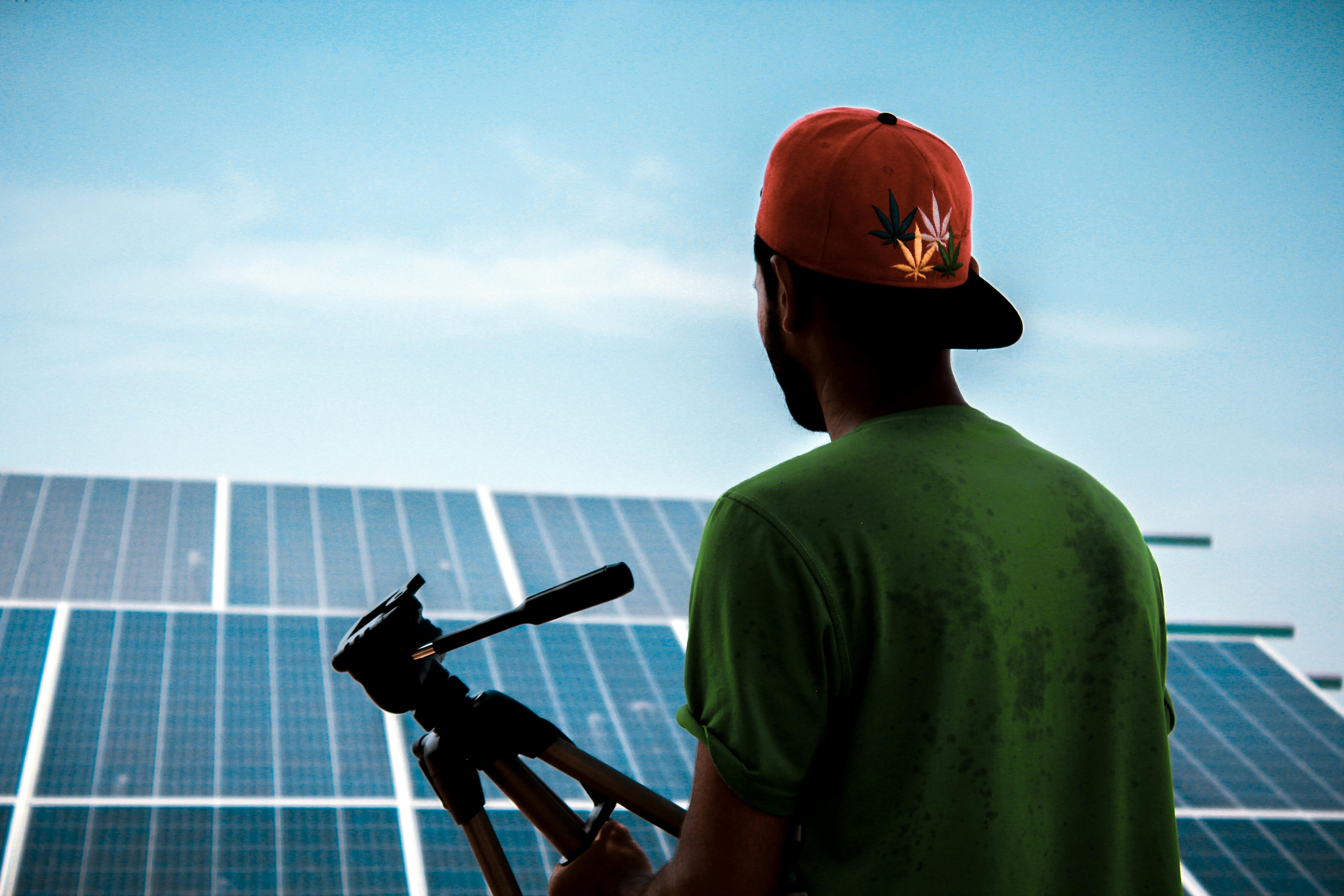Read Time : 3 Minutes
Solar Assisted Heat Pumps - Thermodynamic Panels
What Are Solar Assisted Heat Pumps? A Thermodynamic Panel looks very similar to a Solar Panel; however it’s designed to absorb heat energy, unlike PV (Photovoltaic) or Solar Thermal Panels which are designed to absorb light energy. Thermodynamic panels are about the size of a standard door (1m by 2m) and can be positioned anywhere on the outside of a property.
The most common panel positioning for domestic installations is a side wall of the house. Thermodynamic panels work by circulating a very cold liquid refrigerant through veins in the panel. This liquid is approximately -22°C when it enters the panel. Due to the large temperature difference between the liquid in the panel and the outside air a heat transfer will take place. Heat energy is absorbed by the panel and transferred into a store of water within the property.
Thermodynamic panel systems are designed to heat hot water and constantly keep the water hot 24 hours a day at 55°C. The panels will work at night, as they work on a similar principle to a fridge, and can be positioned facing any direction. Inside the property you would find a unit that contains the working parts of the system compressor, pump, hardware, electronics and a modern insulated cylinder, usually stainless steel.
The water is heated and stored within this unit. Thermodynamic units come in many difference sizes to suit the water demand of the property. A thermodynamic panel system would enable the home owner to completely turn off their existing fuel source for the heating of domestic hot water. This means that the system is capable of heating the water and keeping it hot all year round, unlike a solar thermal system which would need assistance during the winter months of the year. This means that the potential energy savings are greater than is predecessor technologies such as solar thermal.
Most thermodynamic units come with a secondary coil so that the boiler or existing method of heating water can be connect back into the system. This can serve as a backup during times of extreme hot water usage. With uncertainty surrounding fuel prices consumers often see a thermodynamic system as a great way to protect themselves against future fuel inflation. The systems have been slowly gaining support and traction in the UK over the last 10 years. This has been recently helped further by some of the major products and suppliers receiving the government back MCS accreditation. Learn more about thermodynamic hot water systems here
COMPARE PRICES FROM LOCAL INSTALLERS
Compare prices from local companies fast & free
Enter your postcode to compare quotes from leading professionals. We promise to keep your information Safe & Secure. Privacy Policy
Benefits of solar assisted heat pumps
Solar-assisted heat pumps combine the best of both worlds:
The efficiency of heat pumps and the eco-friendliness of solar energy. These innovative systems harness solar power to assist in the heating and cooling of homes, providing numerous benefits that make them an increasingly popular choice among environmentally conscious homeowners. Below, we explore the advantages of solar-assisted heat pumps.
Renewable Energy Source:
The primary advantage of solar-assisted heat pumps is their use of renewable energy. By relying on the sun's abundant energy, these systems reduce reliance on fossil fuels and contribute to a cleaner, greener environment. This helps combat climate change and reduces the carbon footprint of the household.
Energy Efficiency:
Heat pumps are already known for their energy efficiency, as they transfer heat rather than generating it directly. By integrating solar power into the equation, the system becomes even more efficient. Solar energy is free, so the heat pump consumes less electricity from the grid, resulting in lower energy bills and significant savings in the long run.
Reduced Operating Costs:
The combination of solar energy and heat pump technology leads to substantial cost savings. While solar panels have an initial installation cost, they typically have a long lifespan and low maintenance requirements. With reduced electricity consumption from the grid, homeowners can experience significant energy cost reductions over the system's lifetime.
Environmentally Friendly:
Solar-assisted heat pumps are an eco-friendly alternative to traditional heating and cooling methods. By relying on renewable solar energy and reducing the consumption of fossil fuels, these systems contribute to a cleaner atmosphere and a greener planet. This aligns with the growing trend of sustainable living and eco-conscious decision-making.
Energy Independence:
Solar-assisted heat pumps empower homeowners with a degree of energy independence. As they generate their own electricity through solar panels, they become less reliant on utility companies and are better prepared to handle potential power outages or price fluctuations in the energy market.
Low Emissions:
Unlike conventional heating systems, solar-assisted heat pumps produce minimal greenhouse gas emissions during operation. This environmentally friendly aspect further supports the fight against climate change and the goal of transitioning to a carbon-neutral society.
Long Lifespan:
Both solar panels and heat pumps are designed to have long lifespans, often exceeding two decades with proper maintenance. The combination of these technologies ensures a reliable and durable heating and cooling solution for homeowners.
Government Incentives:
Many governments around the world offer incentives, tax credits, and rebates to promote the adoption of renewable energy technologies. Homeowners who install solar-assisted heat pumps may be eligible for these incentives, further reducing the initial investment and accelerating the return on investment.
In conclusion
Solar-assisted heat pumps are a highly beneficial and sustainable option for heating and cooling homes. Combining the efficiency of heat pumps with the renewable energy of solar power results in reduced operating costs, lower emissions, increased energy independence, and positive environmental impacts. As technology continues to advance, we can expect even more efficient and affordable solar-assisted heat pump systems, driving the global transition to a cleaner, greener future.
Find a local installer
Welcome to the biggest directory of UK renewable energy companies






